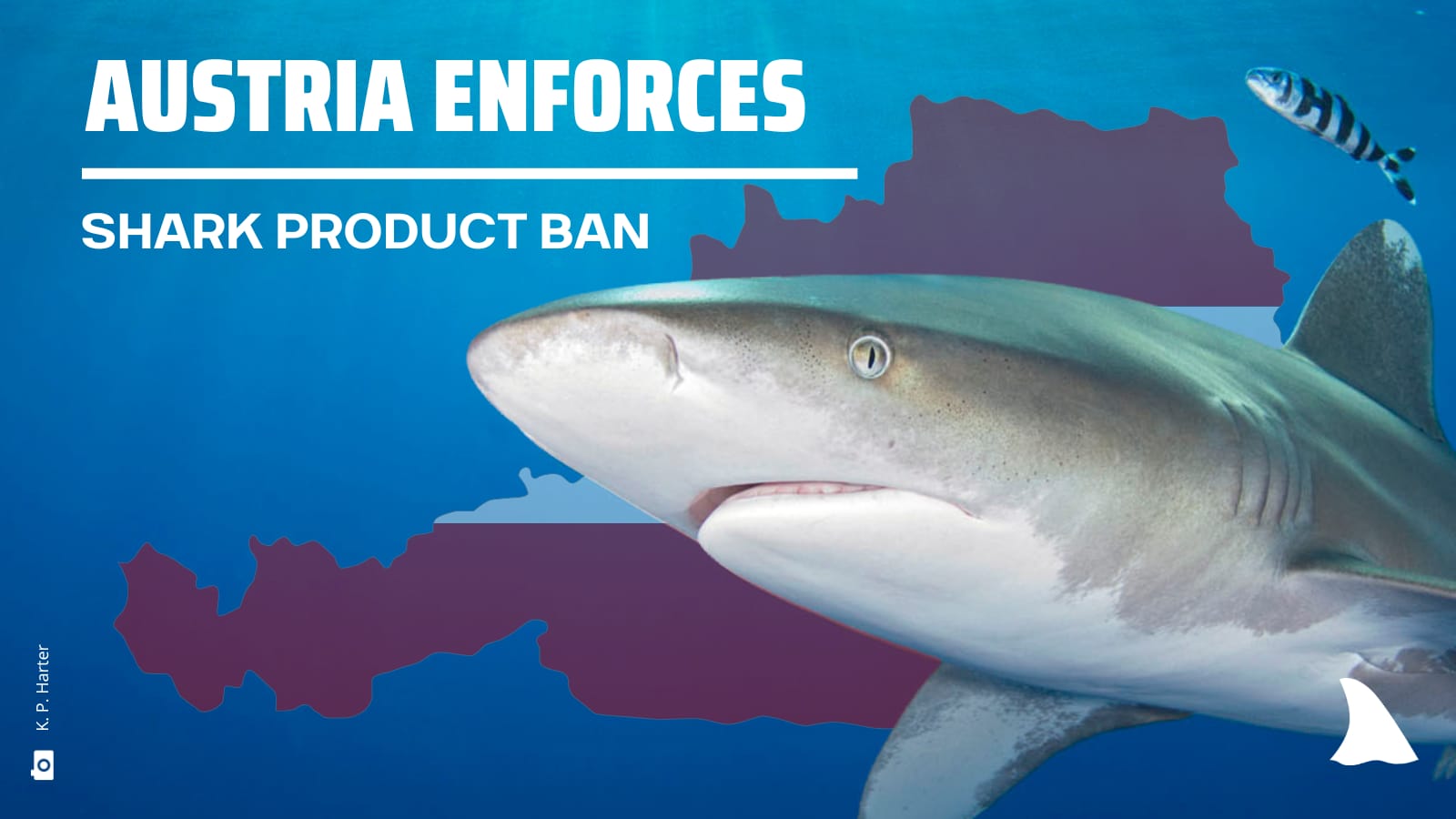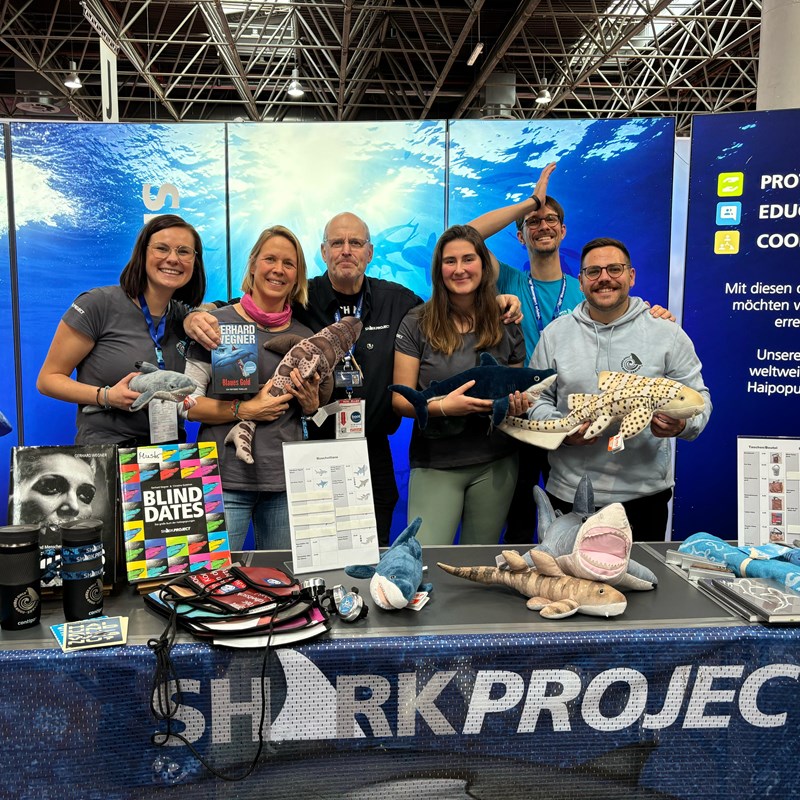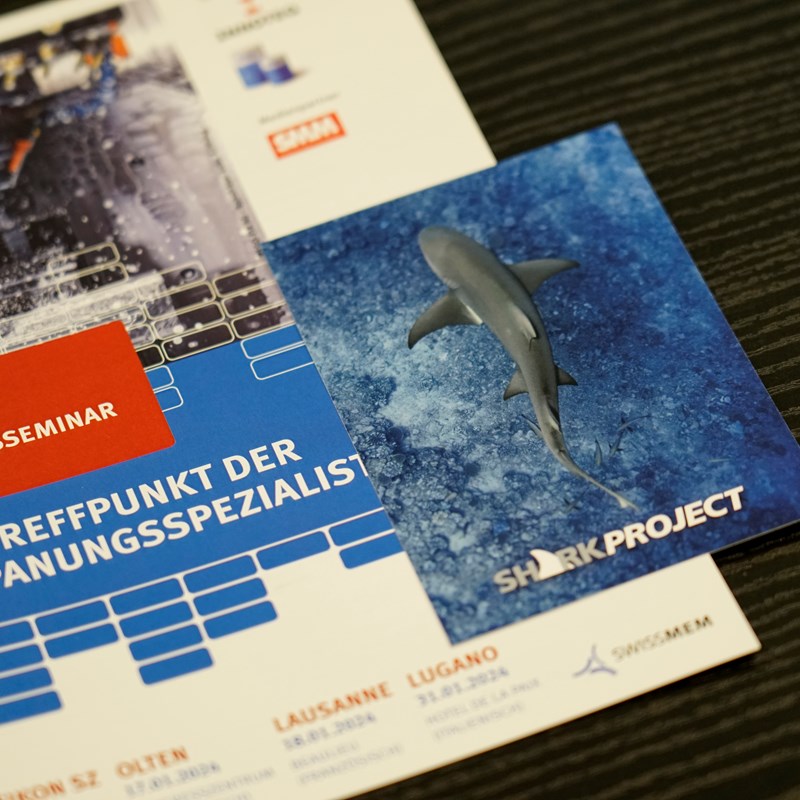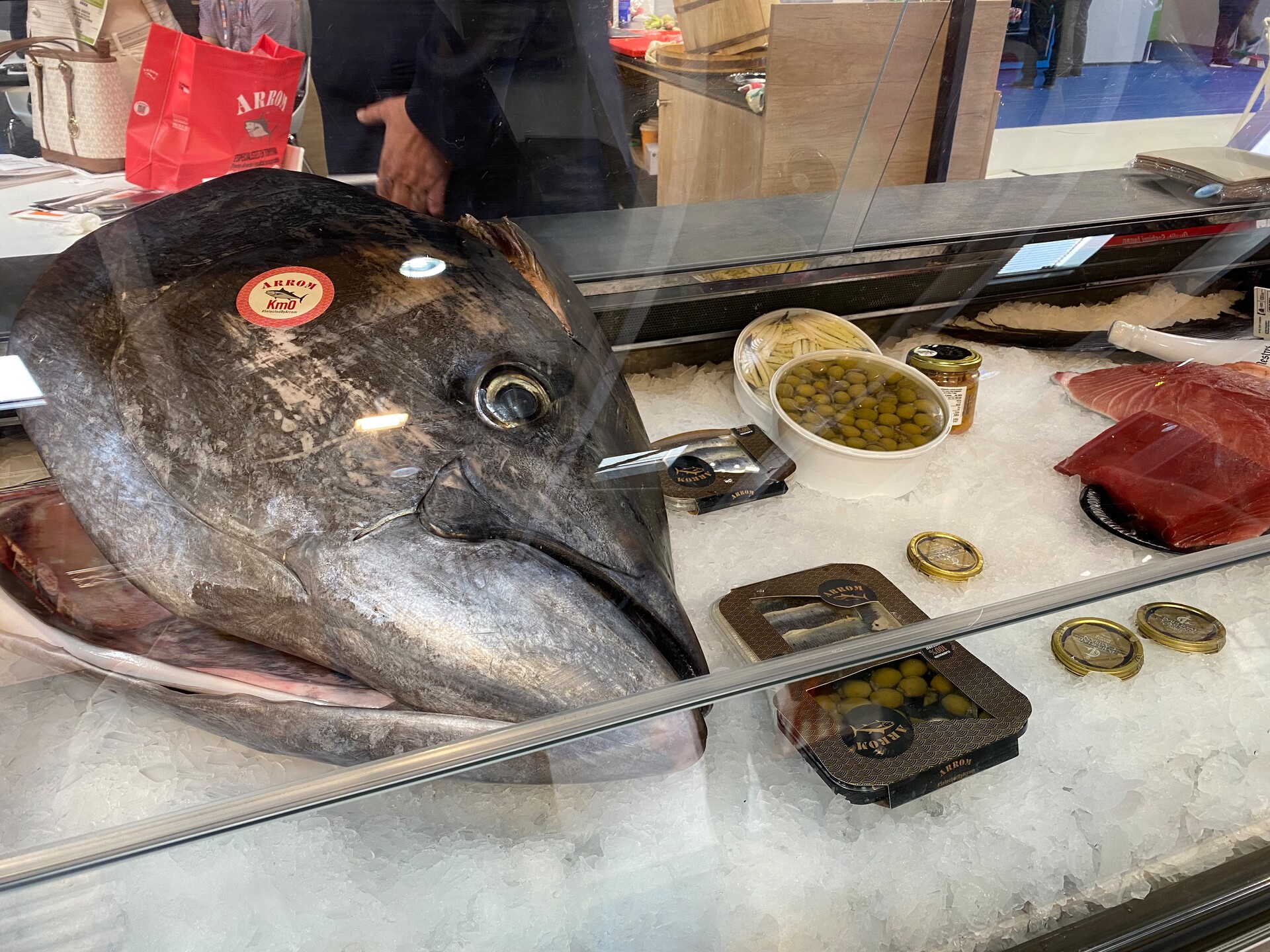
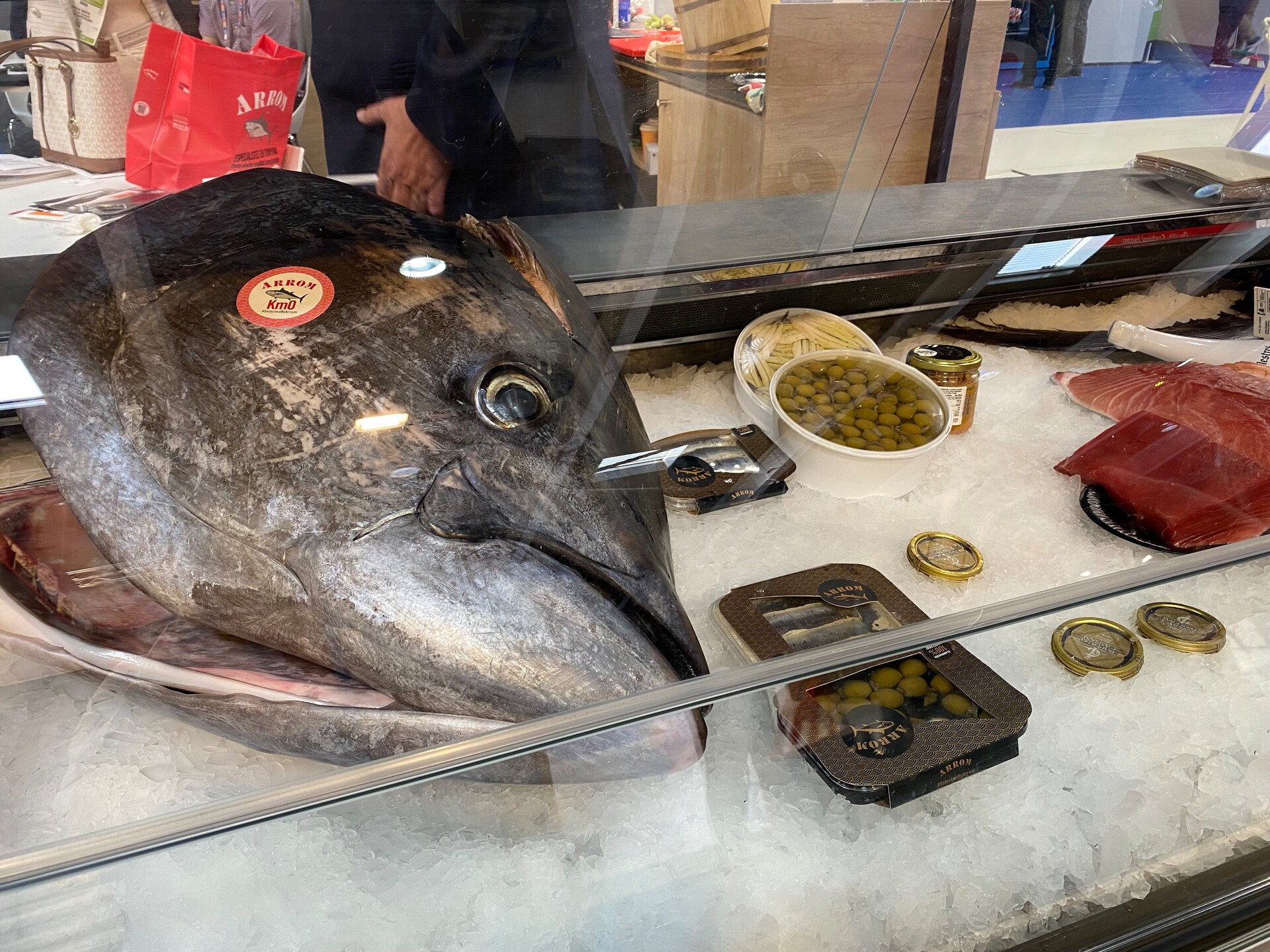
26th Session of the Indian Ocean Tuna Commission does not achieve improvements for either sharks nor tuna
28. May, 2022
IOTC 2022
26th Session of the Indian Ocean Tuna Commission does not achieve improvements for either sharks nor tuna
IOTC 26th Commission Meeting was held in May on the Seychelles as the first in person Commission Meeting after the pandemic, hoping that contracting parties (CPCs) would be able to agree on long time overdue measures to rebuild overfished yellowfin tuna, stop overfishing of skipjack and agree on improved management for drifting FADs (drifting fish aggregating devices) one of the main reasons for the overfished state of yellowfin as this fishing practice mostly impacts juvenile tuna - together with juvenile silky sharks.

© Dr. Iris Ziegler
As an observer to the IOTC we have called to the Commission to stop ignoring the crisis of sharks in the Indian Ocean and start implementing effective measures to stop overfishing of shark populations. To date it has been a vicious circle of lack of reporting resulting in lack of knowledge and certainty of the state of shark populations in the Indian Ocean and resulting in no management measures taken, other than calling for improved reporting, which never happens and as demonstrated by this year’s even further reduced compliance with poor reporting of mandatory statistics on sharks (Res 17/05) that had dropped from 56% in 2020 to only 44% in 2022, as had compliance levels with the existing retention bans on oceanic white tip sharks and thresher sharks, which both had dropped from 2021 compliance levels. In this statement and an oral intervention, we raised our concerns specifically on the lack of management measures at IOTC for
- silky sharks, a CITED App. II listed species rated as vulnerable by IUCN globally and the second most frequent species in the fin trade
- shortfin mako, which is globally endangered, CITES App II listed and already at the brink of collapse in the North Atlantic due to decades of overfishing and due to its high biology vulnerability to overfishing at risk of a similar trajectory in the Indian Ocean
- blue sharks as the most heavily targeted shark species globally, for which IOTC has failed to implement any management measures or catch limits after last year’s stock assessment despite a clear mandate for such only because the stock assessment concluding the stock not to be overfished yet while warning that an increased of catch by 20% would result in overfishing, despite the provision in Res. 18/05 to implement management measures ensuring long term sustainability.
- a precautionary approach to management of shark stocks, especially in view of the poor reporting and high uncertainty about total mortality
- inadequate measures to prevent finning as Res 15/02 only requires Fins Naturally Attached for sharks landed fresh, while continuing to allow cutting of fins at sea for sharks when landed frozen.
So while no shark measure were on the agenda this year at all, agreements could not even been achieved on the main topics of the 26th Commission Meeting.
Once again no measures were adopted on skipjack, yellowfin and FADs as industrial tuna fleets including the EU, China, Taiwan, and others rejected to required catch reductions and tried to force subsistence fisheries like Madagascar to bear the same percentage of catch reductions as themselves, while at the same time objecting to any time closures for dFADs, a measure that has already been implemented successfully at ICCAT (International Commission for the Conservation of Atlantic Tuna) and WCPFC (Western Central Pacific Fishery Commission) and helped rebuilding of tuna stocks in these regions.
Rebuilding tuna stocks is vital, but the CPCs responsible for today’s state of overfishing should not expect coastal states who depend on tuna for food and who catch only a few tons per year, to bear the same share of reductions as those who catch 10,000s to 100,000s of tons per year.
Also, nations like the Maldives using only one by one gear (pole and line & handlines) for catching tuna sustainably almost without bycatch and providing income for their people who have little else for an income and nothing else to export than fish.
Global equity is part of the UN’s SDG 2030 targets and also applies to SDG14 “Life below Water”. Therefore, it should be clear that those who have caused today’s problems of overfishing and the loss of biodiversity in our Oceans should also be obliged to resolve the problems. This also applies to the management of dFADs by including a mandatory “Pollutor Pays Principle”.
We are certainly disappointed to see no agreements have been achieved on any of these important proposals at this year’s Meeting and call to all parties to reconvene and agree on measures that are both effective and respect global equity as soon as possible, as there is no more time to be lost if we want to restore ocean health in the Indian Ocean and food security for the future.
We however believe that calling for a boycott of all tuna from the Indian Ocean may not be the best solution but markets must certainly increase pressure on IOTC and all CPCs to finally agree on effective and socially responsible measures quickly.
Therefore, SHARKPROJECT urges retailers and consumers to stop sourcing or buying tuna caught in the Indian Ocean by purse seine fishing with dFADs, a clearly unsustainable fishing practice resulting in high bycatch rates of juvenile tuna and sharks, and resulting in unobserved mortality of many endangered species from entanglement in dFAD constructions. As long as dFADs are still in use in the IO and IOTC can’t agree on effective measures to improve dFAD management and effective catch reductions to rebuild overfished yellowfin retailers and consumers in Western markets should refrain from supporting Indian Ocean tuna from industrial fishing fleets that continue to refuse carrying the majority burden of urgently needed reductions, when these very fleets are responsible for decades of overfishing. Therefore, e.g. tuna from John West or Princess should no longer be considered as an option for the time being or in other words if sourcing tuna from Indian Ocean this should be exclusively tuna caught via “one by one” fishing methods, such as pole and line or handlines.
And relying on MSC certified tuna from the Indian Ocean is certainly also not the solution as most of the purse seine fleets responsible for overfishing of yellowfin and skipjack are MSC certified, although clearly not sustainable as highlighted in our last blog on MSC.
